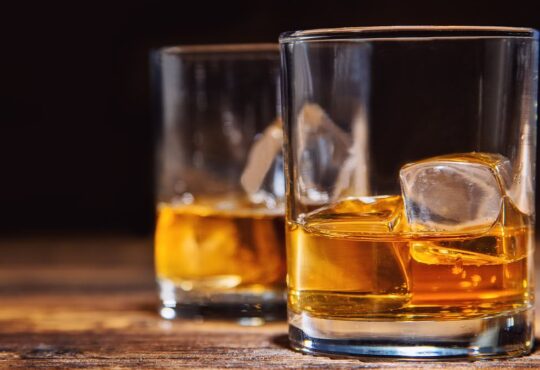
NEW DELHI :India is considering offering higher tariff concessions for bulk whisky imports compared to bottled whisky as part of the ongoing India-UK free-trade agreement (FTA) negotiations. The approach aims to encourage the import of intermediate products and address a contentious issue in the trade discussions.
NEW DELHI :India is considering offering higher tariff concessions for bulk whisky imports compared to bottled whisky as part of the ongoing India-UK free-trade agreement (FTA) negotiations. The approach aims to encourage the import of intermediate products and address a contentious issue in the trade discussions.
The Indian government contends that bulk whisky imports can generate employment by setting up bottling plants in the country, as against finished products.
The Indian government contends that bulk whisky imports can generate employment by setting up bottling plants in the country, as against finished products.
Subscribe to Continue Reading
Meanwhile, local liquor producers are concerned that the India-UK FTA might lead to a surge in whisky imports, posing a threat to Indian liquor producers, already facing fierce competition from the UK, the world’s largest scotch whisky producer.
India overtook France to become the UK’s largest market for Scotch in terms of volumes, with a 60% surge in imports in 2022 from the previous year. India imported 219 million 70cl bottles of Scotch last year, according to the UK-based Scotch Whisky Association (SWA).
While the UK is pushing India to cut tariff on whisky imports to 30% from the current 150% in three years, starting with 75% in the first year, the Indian industry has suggested that the government reduce the tariff to 50% over 10 years, beginning with a duty cut to 100% in the first year. In the case of bulk imports, India may offer a tariff cut to 75% in the first year, going down to 25% in 10 years.
“But the idea is to get this rolling. Once there is a sense of comfort on both sides, the phasing can be faster, maybe in less than 10 years, if we see that it is not affecting the domestic industry. Bulk could be treated differently,” said a person aware of the matter.
Queries sent to the spokespeople for the commerce ministry and the UK’s high commission in India remained answered till press time.
A resolution on whisky is expected as fresh rounds of minister-level talks are ongoing in the UK, and the domestic industry is also on-board with offering concessions on the bulk side as it is used as an intermediate good and can help push economic activity in bottling plants in the country.
“We are fine with more concessions on the bulk side of whisky imports as it is also used as intermediate goods. Currently, bulk imports are increasing at a much slower rate than bottled imports, which is not something very healthy for domestic investments and industry. As for bulk whisky, we are more flexible on all tariff-related matters,” said Vinod Giri, director general of the Confederation of Indian Alcoholic Beverage Companies, representing most major domestic manufacturers of Indian-made foreign liquor (IMFL).
However, he added that the UK would have to review the maturation rules. “We really want the deal to work for both sides. Current maturation rules of the UK deny entry to the majority of Indian products into the UK market. To say that the UK local laws do not allow it is not right. India shows a lot of flexibility in accepting British products as they are. For example, in India, if you make alcohol, you have to make it at 42.8% alcohol,” Giri added.
“The imports come in at 40%, 42.8%, 46%, and that is accepted. The same goes for permitted SKUs (stock keeping units), label declarations, etc. This is on the premise that India will accept what is in line with exporting countries’ legislation. In a similar fashion, what is produced as per Indian laws and FSSAI (Food Safety and Standards Authority of India) guidelines should be accepted. Otherwise, it is unfair,” he further added.
According to the UK rules, alcoholic beverages matured for less than three years can only be sold as “spirits”, which, Indian breweries argue, acts as a non-tariff barrier for whisky exports from India.
But Indian makers argue that alcohol matures much faster in India than in the UK due to its warmer climate, which makes comparisons unfair.






